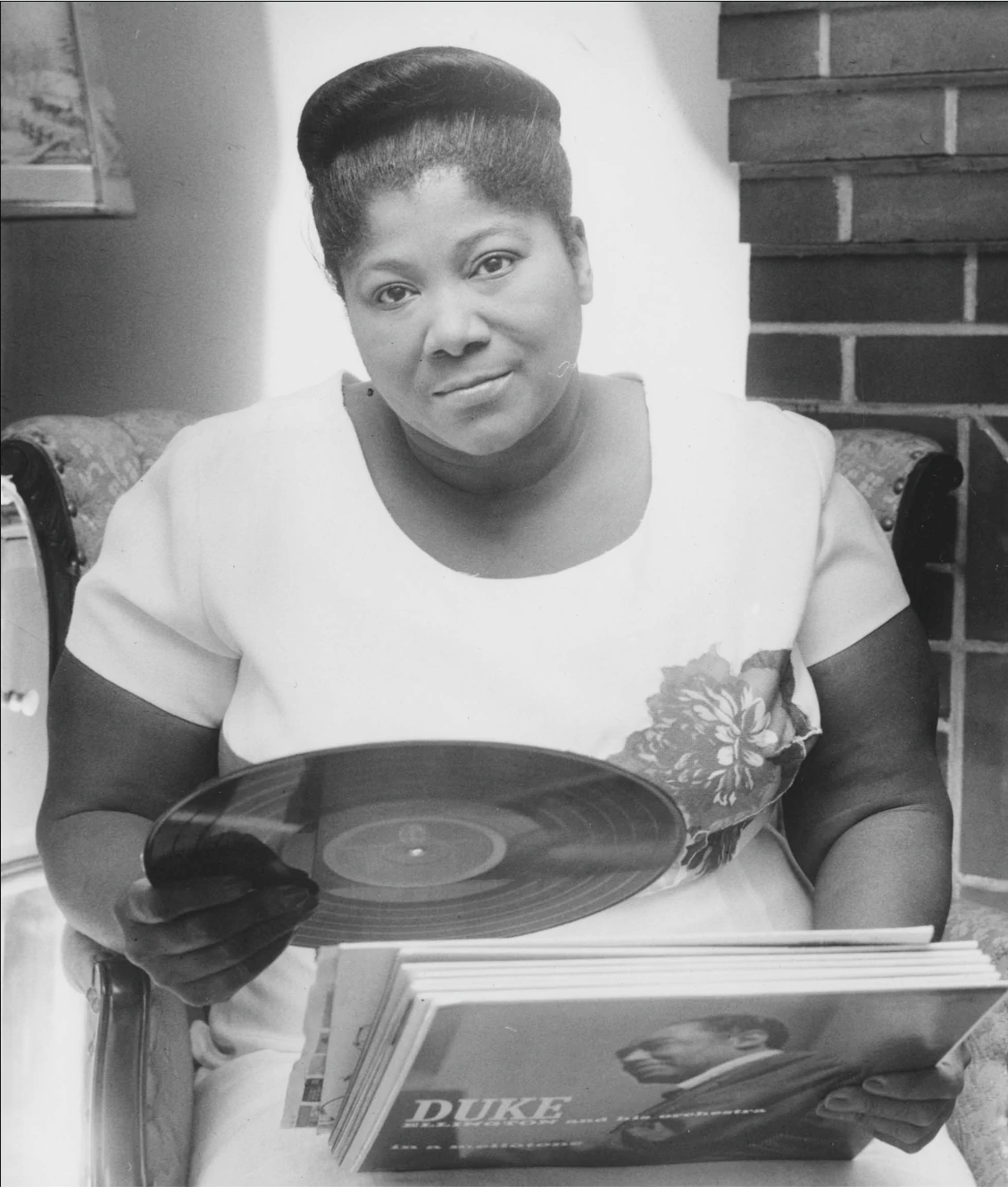June 17, 1959: Mahalia visits Winston-Salem
On this day in 1959, Mahalia Jackson paid her first visit to Winston-Salem. She gave a gospel recital at Atkins High School, sponsored by the WAAA Foundation.
The WAAA Foundation, a charity organization affiliated with the radio station, had made it its mission to promote culture in the community. The event attracted around 1,200 people, who took the opportunity to experience the "Queen of Gospel" live.
A photograph of this historic event can be found in the Forsyth County Public Library Photograph Collection, which houses a rich collection of images depicting the life and history of Winston-Salem and Forsyth County.

© Forsyth County Public Library Photograph Collection, 1959
Welcome to the "Twin City"
Winston-Salem, North Carolina's fifth-largest city, is a city of contrasts and exciting stories. It has two well-known nicknames: "Twin City" and "Camel City." These names tell of the city's unique history and economic heritage.
A look back at the past
The history of Winston-Salem begins not as one city, but as two separate towns. Salem was founded in 1766 by Moravian settlers, while Winston was established in 1849 as the county seat. It was not until 1913 that the two towns were merged, giving rise to Winston-Salem. The heritage of these twin cities is still evident today. Salem became a historical highlight and is now home to Old Salem, an open-air museum that impressively depicts the way of life of the Moravian settlers in the 18th and 19th centuries.
In addition to its Moravian history, Winston-Salem is also inextricably linked to the tobacco industry. The city was the headquarters of tobacco giant R. J. Reynolds, which produced the famous Camel cigarette brand there. This era shaped the city so much that it was nicknamed "Camel City."
Modern center for education and culture
Today, Winston-Salem has developed into an important center for finance, education, and healthcare. The city is home to renowned educational institutions such as Wake Forest University and Winston-Salem State University.
Another important player in the community is one of the largest and best-known foundations in the region, dedicated to improving the quality of life in Forsyth County. The foundation was established in 1919 and supports the community through:
Grant allocation
It awards grants to non-profit organizations for their projects.
Scholarships
It awards scholarships to students to facilitate access to education.
Funds for donors
The foundation helps private individuals achieve their philanthropic goals by managing donor funds.
Joint initiatives
It initiates and promotes projects that address socially relevant issues such as education, economics, and social justice.
A look back at sports and school history
The history of African American education plays a special role in Winston-Salem. The original Atkins High School, built in 1931 as the city's "first modern high school for blacks," was constructed with support from the Rosenwald Fund. The building, which now houses the Winston-Salem Preparatory Academy, has been listed on the National Register of Historic Places since 1999. Its high school was built in 1952 and was originally a freestanding structure.
Today's Simon G. Atkins Academic & Technology High School opened in 2005 as a modern technology magnet school and has its own modern gymnasium and an additional sports hall.
The Forsyth County Public Library Photo Archive
Those interested in the history of the region will find a real treasure trove in the Forsyth County Public Library Photograph Collection. This archive contains thousands of historical images documenting life in Forsyth County and Winston-Salem from the late 19th century to the present day. The photos, taken by local photographers such as Frank B. Jones and Jim Keith, depict a wide variety of subjects, including:
- Historic buildings and street scenes
- Citizens and municipal events
- Portraits and aerial photographs
Part of the collection is available online via the Digital Forsyth platform. To access the entire collection, which is stored in the Central Library, an appointment must be made.
©Thilo Plaesser